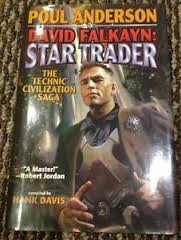See Change.
Science fiction is about change:
a short story can show a single technological advance affecting society (Heinlein: nuclear power; Asimov: robots; Niven: organ-legging);
a futuristic novel shows society changing over time (Wells' The Sleeper Wakes: global industrial capitalism; The Time Machine: devolution of social classes);
a future history series shows further changes over time (Heinlein: space travel but also social regression; Asimov and Anderson: interstellar imperial rise and fall and human-AI interactions);
Wells technologized warfare with tanks, aircraft and atomic bombs;
the first five installments of Heinlein's Future History each focus on a single technological advance, although the first is suppressed;
Anderson's History of Technic Civilization covers the rise and fall of post-Western, interstellar Technic Civilization with additional information on one earlier and two later interstellar civilizations;
Anderson's Time Patrol series dips in and out of Terrestrial history and prehistory -
the Oligocene
the transition from the Miocene to the Pliocene
the Pleistocene
Beringia
ancient Persia
Bactria
the Roman Empire
Goths and Germans
post-Roman Britain
the Middle Ages
pre-Columbian North America
the nineteenth century
Victorian London
World War II
late twentieth century New York and Amsterdam
a lunar base in 2319
galactic conflict in 19352 AD
hints about many other future periods -
- but not Technic Civilization. These are different fictional universes. Each is a complete, self-sufficient series - worthy successors respectively of Heinlein's Future History and of Wells' The Time Machine. Everyone has at least heard of The Time Machine. The phrase has entered the language. Anyone who wants to know more about the literature of change should at least check Heinlein and Anderson.
Summarizing significant science fiction always feels fresh, which is why I keep doing it.

1 comment:
Kaor, Paul!
I agree H.G. Wells is one one of the fathers of modern science fiction. But what of Jules Verne, whose life span overlapped with half of Wells life? He too played a role in shaping SF, more in the direction of "hard" SF, in my opinion. Works of Verne such as TWENTY THOUSAND LEAGUES UNDER THE SEA and FROM THE EARTH TO THE MOON, were also classics of early SF.
Sean
Post a Comment